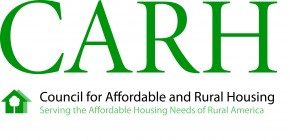- November 2022
- October 2022
- September 2022
- August 2022
- July 2022
- June 2022
- May 2022
- April 2022
- March 2022
- February 2022
- January 2022
- December 2021
- November 2021
- October 2021
- September 2021
- August 2021
- July 2021
- June 2021
- May 2021
- April 2021
- March 2021
- February 2021
- January 2021
- December 2020
- November 2020
- October 2020
- September 2020
- August 2020
- July 2020
- June 2020
- May 2020
- April 2020
- March 2020
- February 2020
- January 2020
- December 2019
- November 2019
- October 2019
- September 2019
- August 2019
- July 2019
- June 2019
- May 2019
- April 2019
- March 2019
- February 2019
- January 2019
- December 2018
- November 2018
- October 2018
- September 2018
- August 2018
- July 2018
- June 2018
- May 2018
- April 2018
- March 2018
- February 2018
- January 2018
- December 2017
- November 2017
- October 2017
- September 2017
- August 2017
- July 2017
- June 2017
- May 2017
- April 2017
- March 2017
- February 2017
- January 2017
- December 2016
- November 2016
- October 2016
- September 2016
- August 2016
- July 2016
- June 2016
- May 2016
- April 2016
- March 2016
- February 2016
- January 2016
- December 2015
- November 2015
- October 2015
- September 2015
- August 2015
- July 2015
- June 2015
- May 2015
- April 2015
- March 2015
- February 2015
- January 2015
- December 2014
- November 2014
- October 2014
- September 2014
- August 2014
- July 2014
- June 2014
- May 2014
- April 2014
- March 2014
- February 2014
- January 2014
Rural Development Management Fees Published for Fiscal Year 2023
BROADCAST EMAIL – Regulatory Update
On August 26th, Rural Development (RD) published Procedural Notice (PN) 567 announcing final management fees for Fiscal Year (FY) 2023.
This year, RD has used HUD’s FY 2022 Income Limits as the base management fee, versus their Operating Cost Adjustment Factors (OCAF), which have been used since FY 2015. To view the chart listing your state’s FY 2023 management fee adjustment, visit pages 54-55 of Attachment 3-F, Chapter 3 of HB-2-3560. In most instances, properties will see a much needed and higher increase than in years’ past (7-11%, based on recent conversations with RD).
A small group of CARH members began working several months ago on efforts aimed at increasing the management fees due to the soaring costs associated with managing properties. The group, comprised of Management Committee co-chairs Joan Franken and Matt Melnick, as well as CARH members Robert Bender, Pam Borton, Kevin Flynn, Dianne Hunt, Babbie Jaco, and Patrick Patterson, had urged RD to increase fees, due to the high rate of inflation and the residual effects of change in operations due to the coronavirus pandemic. This group will continue to work on the best mechanism for determining management fees in the future. The PN includes allowable add-on fees of $5.00 per unit per month. CARH has advocated for add-on fees since 2014 and RD began making them available beginning with the FY 2021 budgets. See section 3.8 B.2 (page 16) of the PN for the list of add-on fees. Of particular interest to many CARH members is the $5.00 add-on fee for properties where there are multiple subsidies (i.e., reporting requirements in addition to and separate from Low-Income Housing Tax Credits or project-based Section-8).
For those properties wanting to claim the add-on fee for “management of properties in a remote location,” beginning with the proposed budgets for FY 2023, RD has provided a definition of “remote location” as those properties located within the USDA Economic Research Service (ERS) Level 4 Frontier & Remote (FAR) Area codes. Please note that the following states/territories do not have areas that meet the Level 4 FAR definition: Connecticut, Delaware, Indiana, Massachusetts, New Jersey, Ohio, Puerto Rico, Rhode Island, South Carolina, and the Virgin Islands. Properties in Alaska or Hawaii that are authorized to take the “off-road” management fee are not eligible to claim an additional add-on fee for remote location. Reasonable justification must be submitted to the Multi-Family Housing servicing specialist for review. Justifications could include extensive travel time, difficulty obtaining services or retaining staff, or required unique means of travel (4-wheel drive, ferry, etc.).
CARH will continue our discussions with RD regarding any future concerns regarding management fees. Please contact the CARH national office at carh@carh.org or 703-837-9001 should you have questions or concerns.
For other news and information affecting the affordable rural housing industry, please visit the Newsroom on CARH’s website, www.carh.org.





